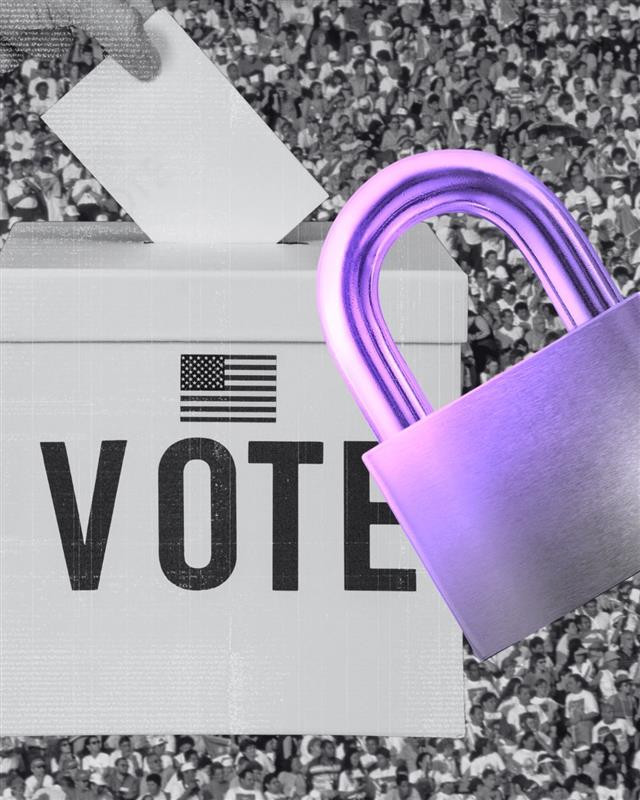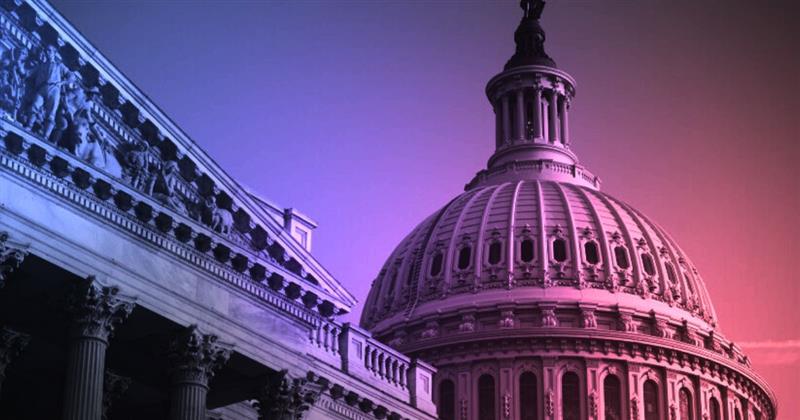Younger voters are rejecting party politics—and the old messaging no longer works
The Big Picture
The traditional battle between red and blue is fading. American political division is no longer defined strictly by party but increasingly by age. Data suggests that younger voters—Millennials and Gen Z—are fundamentally shifting the political landscape by rejecting rigid party affiliations in favor of independence, issue-based voting, and split-ticket choices.
Consider this: Gallup party identification data reveals that while three-quarters of the Silent Generation affiliate with a political party, the majority of voters born after 1980 do not.

This means that hyper-partisan messaging that once resonated with a party's “base” is losing relevance. The Republican and Democratic “bases” are disproportionately older, and their voters are already locked in. Meanwhile, younger voters are more willing to listen to arguments from both sides—and their growing numbers make them an electoral force that can’t be ignored.
Zooming In
Age, not party, predicts issue priorities
Voter priorities differ dramatically by age rather than political affiliation.
For example, immigration is a top concern for voters over 65. But if you're between 18-44, you're more likely to rank inflation, healthcare, jobs and the economy, climate change, civil rights, and abortion as more important issues than immigration.
Data from The Economist/YouGov and The New York Times reinforces this generational divide:
- If you and your friends are mostly white or you get your news from TV rather than social media, you’re likely not Gen Z or Millennial.
- If you consider Israel an ally or China an enemy, you’re also likely not from a younger generation.
This data paints a clear picture: the political conversation is shifting, and party loyalty is eroding among younger voters.
Younger voters aren’t "waiting to join a party"—they’re staying independent
Historically, younger voters started out as independents and eventually joined a political party as they got older. That pattern is breaking.
A Gallup trend analysis from Axios illustrates this shift. Younger voters are not just delaying party affiliation—they're rejecting it altogether.

If you’re 45 or younger, this data likely makes perfect sense. If you’re older, you might be skeptical or assume it’s an anomaly. But the numbers don’t lie—party loyalty is declining, and the old red vs. blue narrative is losing relevance.
Younger voters are open to persuasion—older voters are locked in
Looking at The Independent Center’s Arizona poll, we asked voters:
"Do you expect in the course of the presidential election campaign you might change your mind about the presidential candidate you will vote for?"
- 18-24 year-olds: 42% are open to changing their minds (23% say maybe, 19% are unsure)
- 65+ voters: Only 3% are willing to reconsider their vote
The same poll asked a generic congressional ballot question:
"If this year’s Congressional election in your district were between a Republican, a Democrat, or an Independent/third-party candidate, how would you vote?"
- Only 7% of 18-24 year-olds are locked into voting for a major party candidate.
- 67% of 65+ voters are locked into voting for a Republican or Democrat.
That 60-point spread should be a wake-up call for both parties. Younger voters are split-ticket voters—meaning hyper-partisan messaging is a dead-end strategy.
Data Snapshot
- A majority of Millennials and Gen Z voters are now politically independent (Gallup)
- 18-24 year-olds are 42% more open to changing their minds on candidates compared to only 3% of voters 65+ (Independent Center Arizona Poll)
- Only 7% of younger voters say they are locked into voting Republican or Democrat, compared to 67% of older voters (Independent Center Arizona Poll)
- Younger voters rank economic issues, climate change, and civil rights as higher priorities than immigration (The Economist/YouGov)
Independent Lens
The Republican and Democratic bases are aging out of political dominance. Millennials and Gen Z will make up a plurality of voters this election—a trend that will only accelerate in 2026, 2028, and beyond.
That means:
- Messaging tailored to a party's “base” only reaches a shrinking fraction of voters
- Older voters are already locked into their choices, while younger voters are persuadable
- Split-ticket voting is becoming more common among younger generations
Political campaigns that cling to hyper-partisan rhetoric are fighting the last war. The younger electorate isn’t just waiting to pick a party—they’re redefining American politics.
The question is: Will the political parties adapt before they become obsolete?
Join the conversation. Sign up here for more insights from the Independent Center.


.jpeg)


.jpg)